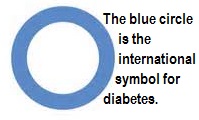It is estimated that just over a quarter of care home residents have diabetes. Yet the first ever audit of diabetes management in care homes found that many aspects of diabetes care were ‘sad and concerning’, according to Professor Alan Sinclair of the Institute of Diabetes in Older People (IDOP).
The audit was conducted by the IDOP and the Association of British Clinical Diabetologists (ABCD) and covered 2,043 care home premises, whose managers responded to a survey. Only one in 10 residents in the care homes in the audit were reported to have diabetes, which the authors say is at odds with research that consistently shows that 26 per cent of residents actually have the condition.Overall, the audit found that diabetes care and documentation was of a variable standard. Key findings included:
More than a third of residents did not know about the signs and symptoms of hypoglycaemia
17.3% of homes had no system in place to check whether residents who self-medicate for diabetes had taken their medication
35.5% of homes had a policy for screening for diabetes
63.3% of homes had a written policy for managing hypoglycaemia
36.8% of homes had a designated member of staff with responsibility for diabetes
34.3% of homes could confirm they received an annual review report for each of their residents with diabetes
43.9% of homes kept documented evidence of the latest HbA1c (blood glucose level) estimate from a resident’s GP
40% of homes kept a record of the latest kidney function test carried out by a GP
Half of all residents with diabetes in the survey were also considered to be at risk of moderate to severe foot disease.
‘We know care home staff are working hard to care for their residents but it was sad and concerning to discover some of the results,’ said Professor Sinclair. ‘Especially, the fact 17.3 per cent of homes had no system in place to examine whether those who self-medicate for diabetes have taken their medication. We encourage self-medication but it needs to be checked in a care setting, especially.’
One aim of the audit is to identify quality standards that the Care Quality Commission (CQC) can use to assess the quality of diabetes care in care home settings. The last major initiative in this area came from the charity Diabetes UK, which in 2010 published advice in the form of ‘Good clinical practice guidelines for care home residents with diabetes’, which can be downloaded from the Diabetes UK website. http://www.diabetes.org.uk/Guide-to-diabetes-OLD/Care-homes/
However, the recent audit identified an urgent need to provide better support, information and training for residents, families and care staff in managing diabetes safely, both to improve residents’ quality of life and also to prevent unnecessary emergency hospital admissions.
One outcome of this is a collaboration between The Institute of Diabetes for Older People and a small charity, The Independent Diabetes Trust (IDDT), to produce a Passport For Diabetes in Care Settings. The A5 booklet is intended to provide health and care professionals with at-a-glance information about how a person with diabetes manages their condition, their dietary preferences, warning signs of hypo- or hyperglycemia, meal times and blood testing routines and annual health checks record. It also includes a section for observations on skin conditions, thrush and urinary tract infections, which are particularly common in people with diabetes.
The Passport can be kept with the resident’s care plan, and can accompany them if they are admitted to hospital. It can also be used by people with diabetes who are cared for at home. The Passport can be filled in by the patient, a carer, family member or health care professional and its style is user-friendly and straightforward.
Since its launch earlier this year, the IDDT says it has sent out more than 16,000 Passports and has received favourable feedback from users, care home operators and clinical commissioning groups. Care home groups can arrange to have the Passport branded if they wish.
To order free copies of the Passport For Diabetes In Care Settings, call 01604 622837, or order online at http://www.iddtinternational.org
Christine Michael is a freelance health journalist who specialises in diet, diabetes, health and social care. Her website is http://www.diabetesdietchoices.org.uk
Download this and previous issues of Care To Share Magazine here
